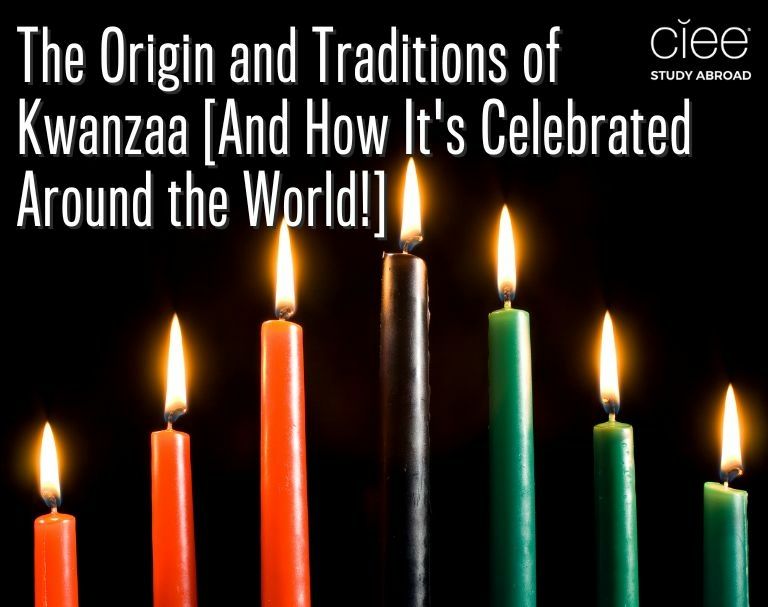The Origin and Traditions of Kwanzaa [And How It's Celebrated Around the World!]
Envision a holiday where culture, community, and meaningful traditions take center stage – sounds pretty incredible, right? That’s Kwanzaa. This isn’t your typical winter celebration; it’s a week-long tribute to African heritage, unity, and the power of tradition. No matter if you’ve celebrated it for years or are just learning about it now, there’s so much to explore. From its powerful origin story to the way it’s celebrated worldwide, Kwanzaa offers a unique way to honor heritage and bring people together.
Let’s dive into the stories, symbols, and celebrations that bring Kwanzaa to life around the globe.
What is Kwanzaa?
Kwanzaa is a vibrant seven-day celebration, honored December 26 to January 1 annually, rooted in African culture and values. Focused on unity, reflection, and pride, the holiday brings families and communities together to honor heritage and foster hope for the future.
Kwanzaa Origin
Kwanzaa was founded in 1966 by Dr. Maulana Karenga, an activist and professor, during the Black Freedom Movement. His goal was to celebrate African heritage while promoting cultural unity and self-determination. Drawing inspiration from traditional African harvest festivals, Kwanzaa’s name is derived from the Swahili phrase “matunda ya kwanza” meaning “first fruits.” It serves as both a historical acknowledgment and a cultural bridge.
Read More: 5 Tips for Students Studying Abroad from Underrepresented Backgrounds
Kwanzaa Traditions
Each day of Kwanzaa highlights one of seven principles, known as “Nguzo Saba,” which include unity (umoja), self-determination (kujichagulia), and purpose (nia), among others. Families light candles on a “kinara,” a candelabra with seven holders, each representing one of the principles. Traditional music, storytelling, and shared meals are central to the festivities, along with meaningful exchanges of handmade or culturally significant gifts.
Food plays an important role during Kwanzaa, with celebratory feasts often featuring dishes inspired by African, Caribbean, and Southern cuisines. Typical Kwanzaa food might include dishes like jollof rice, gumbo, fried plantains, collard greens, and sweet potato pie. These meals are more than just delicious – they’re an opportunity to honor African heritage and share stories around the table.
Who Celebrates Kwanzaa?
This holiday is widely celebrated by African Americans and people of African descent worldwide, particularly in the U.S., Canada, and the Caribbean. While it’s not a religious holiday, it holds deep cultural significance, offering a space for people to connect with their heritage and strengthen community ties. In recent years, its themes of unity and resilience have resonated with an even broader audience.
Where is Kwanzaa Celebrated?
Kwanzaa is primarily celebrated in the United States, where it originated, but it is also observed in countries around the world, like England!
Can I Celebrate Kwanzaa Abroad?
Yes, through CIEE Study Abroad you are able to celebrate Kwanzaa abroad!
In London, England, the Black community comes together to honor the holiday's values of unity, heritage, and culture. There are many Kwanzaa celebrations held at various churches and plazas throughout the week-long holiday, with traditional foods being shared as part of the festivities. While Kwanzaa celebrations may not be as widespread as in the U.S., there are still plenty of opportunities to get involved and celebrate in London.
Read More: 10 Reasons to Study Abroad in London
Celebrate Kwanzaa Abroad with CIEE
While Kwanzaa may not be celebrated everywhere you study abroad, that doesn’t mean you can’t bring the spirit and traditions with you! Whether it’s hosting a small gathering, teaching others about the seven principles, or sharing traditional foods, you can make the holiday your own and share it with your new community.
So, get ready to take your traditions abroad and make lasting memories wherever you go!

